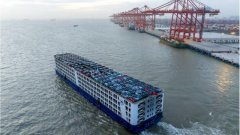Source: Bloomberg
China has become a world leader in the field of electric vehicles by providing subsidies to enterprises.In the United States and Europe, more and more people have heard such a statement, and the core of the trade war is constantly upgrading.
If the fact is really so simple, then China should be able to occupy all industries, including aircraft manufacturing and semiconductors.In the case of Western politicians' efforts, Chinese electric car companies can still quickly occupy the world's leading position. Its success has its own uniqueness. Other countries can learn from the experience of revitalizing industries.
After confirming that electric vehicles have an important role in the environment and economy, the Chinese government has invested a lot of funds in the industry, but it is a foreign company that really stimulates domestic industries.Running back.Although former China Minister of Science and Technology Wan Gang urged to surpass the dominant position of foreign brands through investing in electric vehicles, when Tesla started producing electric vehicles in China in 2019, consumers' enthusiasm was really stimulated, andDrive the construction of the entire electric vehicle supply chain.
Innovation has become a slogan, dozens of electric vehicle manufacturers have sprung up like rain, and each one tries to surpass each other in design, software and other high -tech functions.Many companies have been eliminated and they can leave a ruthless role.In 2024, the Chinese electric vehicle market is characterized by price wars and fierce competition.
The policies adopted by Chinese leaders are now being followed by the Western government, and they also try to improve the competitiveness of local electric vehicle companies through subsidies and other methods.However, it is clear that while promoting the development of the entire new energy vehicle industry, the Chinese government is also willing to let enterprises naturally eliminate it. This is where the industry is different.In contrast, China has been committed to manufacturing domestic aircraft for decades to fight Boeing and air passenger cars, but Chinese Shangfei has not made a significant breakthrough in this regard.
Gerard Dipippo, a high -level geographical analyst at Bloomberg Economic Research, said that in the field of electric vehicles, China does not seek "creating a specific national champion". China hopes that its car companies can become winners, but they do not want to choose the winner for the winner.It is more like a strategy of "all flowers".
BYD and other auto manufacturers have launched electric hatchbacks equipped with rotating touch screens, which starts at only RMB 73,800 ($ 10,200).With spacious internal space and first -class car entertainment system, the ideal car's L series jumped into the leader in the electric SUV rankings.Apple has abandoned electric vehicle projects, and Xiaomi's SU7 electric vehicle release date is hot.
Some of these auto manufacturers are even expected to be the next Toyota.BYD produced more than 3 million vehicles last year, surpassing Tesla in the fourth quarter to become the world's largest electric vehicle seller, and at the same time, the Chinese economy was boosted.
The innovation of electric vehicles also drives surrounding areas such as battery and supply chain optimization.
When the electric vehicle industry is still in the development stage, the Chinese government has established a "white list". Only the battery company on the list can be supplied to domestic electric vehicle companies. This is equivalent to excluding foreign battery manufacturers onOutside the market.However, the list was canceled in 2019. In the first four months of 2024, BYD and Ningde Times in the global electric vehicle battery market share of 53.1%.At a recent press conference, an official of the Chinese Ministry of Commerce said that electric vehicle manufacturers in the Yangtze River Delta region near Shanghai could get all the required parts and components within four hours.
According to Bloomberg's economic research estimation, by 2026, the contribution rate of electric vehicles to GDP will reach 2.7%, which is equivalent to nine times in 2020, but it is still not enough to fill the gap left by the Chinese real estate bubble.Essence
In the long run, automobile manufacturers may contribute greater contributions to the economy, but their global development is also obstructive.The U.S. 100%tariffs on Chinese electric vehicles actually rejected them, and the European Union also announced a plan to levy up to 48%of tariffs this month.Both the United States and the European Union say that the Chinese government has provided financial support for the automotive industry and condoned overcapacity.
Zhang Yu, the founder of the pre -pre -car consultation Co., Ltd., said that if Western decision makers think that subsidies are pirates, it is very wrong.
He said that it can never create a healthy industry by subsidies alone. The reason for the success of China is product driving and demand drive. After Tesla leads, China runs faster and faster, and Europe has slowed down the steps slowly.Essence
Of course, it will pay the price when running fast.Chinese brands have always faced pressure on updates and upgrades. Sometimes they have to be updated once every 18 to 24 months. This speed is unimaginable in other places.In Europe, it may be updated once in four to five years.This enthusiastic rhythm will make employees exhausted.
Strongly contrast
China needs to reduce the serious pollution of cities, which has played a vital role in its electric vehicle policy.The government provides a large number of subsidies to car buyers and encourages them to switch to electric vehicles to form a demand -oriented cycle, rather than the excess supply.
Ilaria Mazzocco, a senior researcher at the Center of Strategy and International Research, said, "The government involved when the electric vehicle industry was still young. At that timeEssence
ALBRIGHT Stonebridge Group, a former U.S. government official, said that this has formed a "sharp contrast" with the United States, and the United States is more willing to make market power decide electric vehicles.Whether it will become a feasible alternative.
He said that China successfully created an atmosphere of "imperative" for the rise of electric vehicles.The official approach of Beijing is to provide continuous subsidies and encourage private enterprises to participate in competition. As the most innovative and capable private enterprises stand out, the government will slowly withdraw.
China's help also include investment in charging infrastructure (even if the number of electric vehicles on the road at the time was small), and the launch of preferential licenses.
Eurasian group analyst Herbert Crowther said that the largest Asian economy has also become particularly powerful in the battery field. This is the main reason why Chinese electric vehicle companies have more advantages in cost than competitors.
He said that the pricing of Chinese electric vehicle battery companies even surprised the biggest foreign competitors, which may completely subvert the cost of electric vehicles in the sense of traditional economics.In this plan, China's policy is also effective in this field, and Western industrial policies may continue to struggle.
From artificial intelligence to renewable energy or biopharmaceuticals, China may achieve leap in multiple fields in the future.In the final analysis, this will depend on Chinese scientists and entrepreneurs, not officials.
SCOTT Kennedy, an expert in China, a Chinese issue at the Center of Strategy and International Research, said that "the government of creating an innovative environment" will become winners, which will make "companies with potential to achieve breakthroughs in the market will eventually find a place in the market."
-Jointly reported Linda Lew, Chunying ZHANG, Mei Yijie, Li Jiahong.



